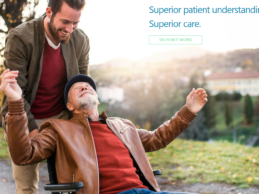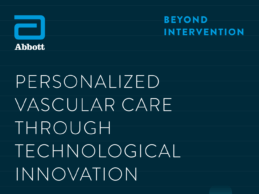What You Should Know:
- Rimidi, a leading clinical management platform designed to optimize clinical workflows, enhance patient experiences and achieve quality objectives, and Boston Medical Center, a private, not-for-profit academic medical center in New England, recently released metrics from an ongoing remote patient monitoring program for new moms at high-risk of postpartum hypertension.
- Of the 1,000 patients monitored, 98.7% submitted at least one blood pressure measurement,
Read More
Hospital Readmissions
Digital Front Doors Create Personalized Patient Experience
Heightened patient expectations are changing the way healthcare services are delivered, from the way patients receive care to the way they pay for services and manage their conditions. A need for greater patient-centricity is changing the way payers, providers, and healthcare services organizations do business. The digital front door is an ecosystem of technologies patients use to engage with healthcare, starting from when they detect symptoms, to when they pay or receive post-appointment care.
Read More
Executive Roundtable: Can Innovation Alleviate Clinician Burnout?
The U.S. Surgeon General’s recent advisory about clinician burnout cited numerous societal, cultural, structural, and organizational causes—including excessive workloads, administrative burden, and lack of organizational support. The potential fallout of this trajectory is alarming: The advisory cites the Association of American Medical Colleges’ estimate on clinician demand outpacing supply, with an anticipated shortage of between
Read More
What Hospital Success Looks Like Under Value-Based Care
Hospitals are increasingly turning to value-based care initiatives to transform care delivery, lower the total cost of care, and improve patient outcomes. Unlike traditional fee-for-service (FFS) models that reimburse providers based on volume (i.e., the number of patient visits), providers are reimbursed based on the quality of care delivered in value-based care. Ultimately, success under these reimbursement models hinges upon seamless coordination between all stakeholders across the continuum
Read More
Data-Driven Healthcare Operations Will Transform Outcomes
You don’t need another story urging you to “get to the cloud.” That’s old news for healthcare executives, who’ve long understood the necessity of rebooting the way their organizations operate in the digital era.
In a recent McKinsey study, 19 of the 22 healthcare leaders the company interviewed described digital healthcare solutions as “highly relevant” or “relevant” to their businesses. They get it.
In fact, digital healthcare has already become the minimum table stakes: 93% of
Read More
WellSky Acquires TapCloud, Health AI Platform to improve Patient Engagement
What You Should Know:
- Today, Wellsky announced the acquisition of TapCloud, a virtual, interoperable, and AI-driven patient engagement platform that allows patients to share symptoms and other health data with providers via virtual visit technology, secure messaging, and remote symptom screening protocols.
- Frequent communication between patients, clinicians, and payers is critical to providing quality care and delivering on value-based care. TapCloud’s interoperable, AI-driven platform
Read More
The Future of Remote Care Automation Begins with Cardiac Rehabilitation
2020 was undeniably the year that saw telehealth and remote care services come to the forefront of medical care. Many have hypothesized that, in the post-COVID world, remote care programs will be ubiquitous throughout hospitals and health systems. However, such a future is far from certain, as too many organizations currently lack the budget, IT infrastructure, and time necessary to implement new innovative remote care programs. There is a considerable disparity between the hype surrounding
Read More
Treat in Place: Protecting Nursing Home Patients From Hospital Readmission
A night doctor’s dilemma
Five years ago, I was practicing medicine in a rural hospital in North Carolina as a nocturnist, when I received a call from an Emergency Room (ER) doctor. “Hey, it’s Blake. Room 7. Demented. UTI,” he says, and hangs up.
I was struck by the abrupt and sparse communication—no detailed report. Not even a name. Charged with admitting and caring for patients, I head downstairs and find myself in room 7 where an elderly woman with a blown IV and no family around is
Read More
5 Steps for Interoperability Excellence for Healthcare Providers
As if 2020 couldn’t be any more challenging for healthcare providers, new federal rules on interoperability and patient access, granting patients direct access to their healthcare data, begin taking effect in 2021 and will continue into 2022. These rules, while ultimately beneficial to patients, bring an additional level of operational complexity to many revenue-stressed healthcare organizations.
If anything, the 2020 pandemic has illustrated the vast potential of interoperability. For
Read More
How Data-Driven Technology Holds The Promise of Better Outcomes for Vascular Patients
Abbott recently released global research on vascular patient care, designed to shine a light on the vascular patient journey. The report called “Beyond Intervention” uncovers the universal challenges faced by physicians who deliver vascular care, their patients, and the hospital administrators who support them. It also explores how the right use of technology and data could potentially enable more precise diagnoses and better treatment strategies to ensure the best possible patient
Read More










